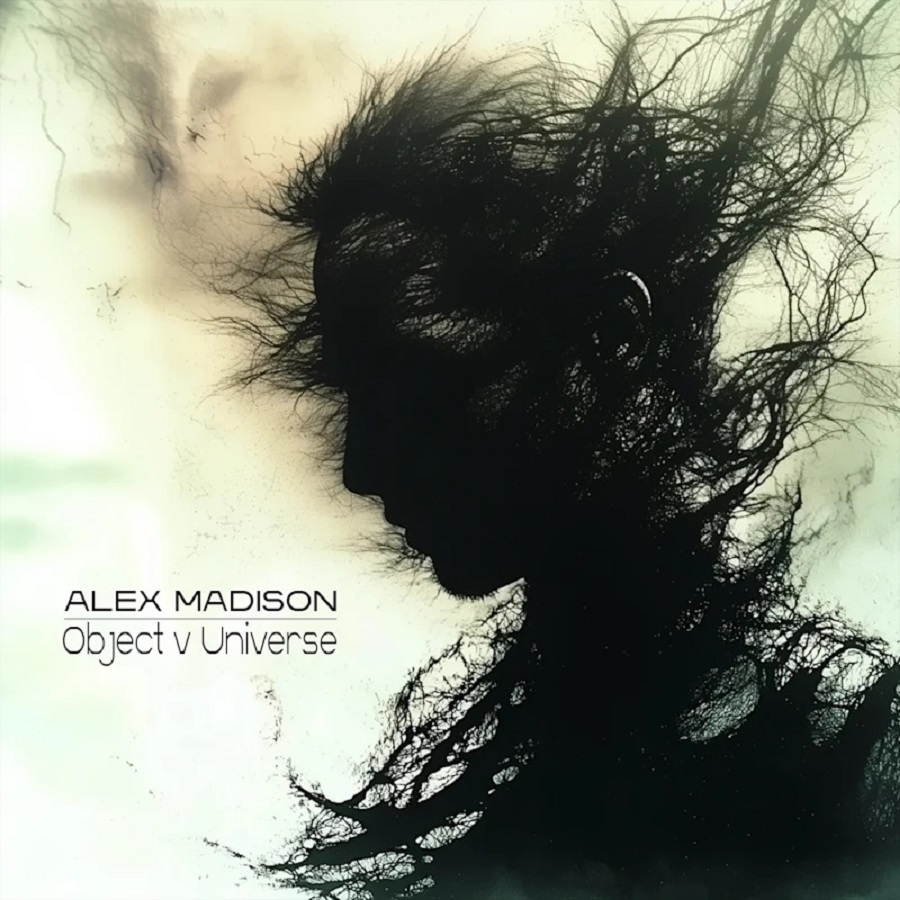These were the last compositions Vangelis recorded: “Juno to Jupiter,” about NASA’s project in which the agency sent a space probe to the largest planet in our solar system. As always, the atmosphere of the music played a greater role than the composition itself: you had to imagine yourself in space, heading toward that giant with the red spot. It’s cinematic music: even if you’re unaware of the NASA project, you still feel that you’re no longer firmly grounded on Mother Earth—that the music has carried you off, toward the stars and into the vastness of space.
The Australian multi-instrumentalist Alex Madison cites a wide range of influences on his work: from the doom metal of Katatonia to the film scores of Hans Zimmer and Bernard Herrmann, and ultimately Pink Floyd and Radiohead. On top of that, he draws inspiration from classical composers like Shostakovich and Dvořák. It’s an extensive list, but one name is conspicuously absent. One of the first names that comes to mind when hearing a piece like “Lento e Largo” is indeed that of the Greek keyboard virtuoso, as Madison is capable of evoking the same atmosphere of the great unknown. The continuously swelling and intertwining strings sound expectant: we’re on our way but to where?
Looking back at that list of influences and sources of inspiration, it’s hardly surprising that the Australian artist occasionally treats us to complex compositions with strange key changes and nearly bizarre chord progressions, or to dragging, ominous doom based on just three notes. And yet, somehow, it all works. It’s worth noting, however, that this isn’t music to play casually in the background. You need to sit down and immerse yourself in the richness of this record, with its mix of classical elements, atmospheric soundscapes, and post-rock.
Madison takes you into his world in eight tracks. Much like Vangelis, you immediately sense that you’ve temporarily left the earthly realm, starting with the classical themes and intriguing chord progressions in the intro of “Ice Blood Lake,” and ending with “Doomageddon” and “Mirrorworld II,” the final tracks on this album and two pieces that seem to be opposites. These tracks are exemplary of Madison’s music.
“Doomageddon” begins with a few deep, growling bass tones reminiscent of doom metal. The music drags itself forward at a torturously slow pace, repeating just three dark notes, until the piano takes over again in “Mirrorworld II,” a varied piece with tempo changes and a guitar section that momentarily makes you feel as though you’re listening to a long-lost track from “Wish You Were Here.” This brings the journey full circle, as the opening track “Ice Blood Lake” already demonstrated Madison’s talent as a guitarist, capable of making six Stratocaster strings truly sing like the Great Masters.
Alex Madison isn’t exaggerating when he lists all those influences; they are all distinctly present on “Object v Universe,” making it a remarkable album. Remarkable enough? The blending of diverse styles and numerous influences isn’t quite sufficient to elevate it further, though the Australian does manage to strike a chord. That’s impressive and a rare feat for purely instrumental music. However, the risk of drawing from so many influences and styles is that the album occasionally feels disjointed, leaving the listener somewhat lost. A bit more cohesion would be welcome—but perhaps that’s for a second album. Because one thing is certain: we’ll be hearing more from Madison. (7/10) (8552824 Records DK)

